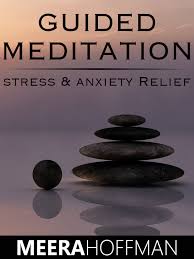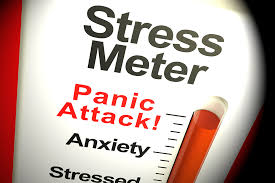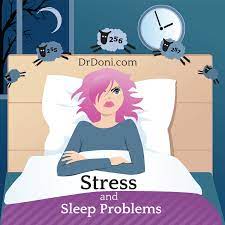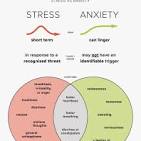Effective Strategies for Stress and Anxiety Relief
Stress and anxiety are common experiences in today’s fast-paced world, affecting people of all ages and backgrounds. While it’s natural to feel stressed or anxious at times, chronic stress and anxiety can have a negative impact on both our physical and mental well-being. Fortunately, there are effective strategies that can help you manage and reduce stress and anxiety in your life.
Practice Mindfulness
Mindfulness involves being fully present in the moment and paying attention to your thoughts, feelings, bodily sensations, and the environment around you. Mindfulness techniques, such as deep breathing exercises and meditation, can help calm your mind, reduce stress levels, and increase feelings of relaxation.
Exercise Regularly
Physical activity is not only beneficial for your physical health but also plays a crucial role in managing stress and anxiety. Regular exercise releases endorphins, which are known as “feel-good” hormones that can improve your mood and reduce feelings of stress.
Maintain a Healthy Lifestyle
Eating a balanced diet, getting enough sleep, staying hydrated, and avoiding excessive caffeine and alcohol consumption are essential components of maintaining overall well-being. A healthy lifestyle can help you better cope with stressors and reduce feelings of anxiety.
Seek Support
Don’t hesitate to reach out to friends, family members, or mental health professionals for support when you’re feeling overwhelmed by stress or anxiety. Talking about your feelings with someone you trust can provide emotional relief and help you gain perspective on your situation.
Engage in Relaxation Techniques
Engaging in relaxation techniques such as progressive muscle relaxation, guided imagery, or aromatherapy can help calm your mind and body during times of stress or anxiety. Find activities that bring you joy and relaxation to incorporate into your daily routine.
Prioritize Self-Care
Make self-care a priority by setting aside time for activities that nourish your mind, body, and soul. Whether it’s reading a book, taking a warm bath, practicing yoga, or going for a nature walk – taking care of yourself is essential for managing stress levels effectively.
In conclusion, managing stress and anxiety requires a proactive approach that involves adopting healthy coping mechanisms and seeking support when needed. By incorporating these effective strategies into your daily life, you can cultivate resilience, improve your overall well-being, and experience greater peace of mind.
Top 7 FAQs on Managing Stress and Anxiety Naturally and Effectively
- How do you manage stress and anxiety?
- How can I relieve stress and anxiety fast?
- What is the 333 rule for anxiety?
- How can I reduce stress and anxiety naturally?
- What is the best remedy for stress and anxiety?
- How can I reduce my anxiety naturally?
- What are 5 ways to relieve stress?
How do you manage stress and anxiety?
Managing stress and anxiety involves a combination of self-care practices, mindfulness techniques, and seeking support when needed. To effectively manage stress and anxiety, it’s important to prioritize activities that promote relaxation and well-being, such as exercise, meditation, deep breathing exercises, and engaging in hobbies that bring joy. Additionally, maintaining a healthy lifestyle through proper nutrition, adequate sleep, and limiting caffeine and alcohol intake can help reduce stress levels. Seeking support from friends, family members, or mental health professionals can provide valuable guidance and emotional support in navigating challenging situations. By incorporating these strategies into your daily routine, you can develop effective coping mechanisms to better manage stress and anxiety in your life.
How can I relieve stress and anxiety fast?
When seeking quick relief from stress and anxiety, it’s essential to prioritize self-care practices that can provide immediate relaxation and calmness. Simple techniques such as deep breathing exercises, progressive muscle relaxation, or mindfulness meditation can help you quickly center yourself and alleviate feelings of tension. Engaging in physical activity, such as a brisk walk or gentle yoga session, can also release endorphins and reduce stress levels rapidly. Additionally, taking a short break to focus on activities you enjoy, like listening to music, practicing gratitude, or spending time in nature, can offer fast relief by shifting your focus away from stressors. Remember that finding what works best for you in the moment is key to effectively managing stress and anxiety when seeking fast relief.
What is the 333 rule for anxiety?
The 333 rule for anxiety is a simple yet effective technique that can help individuals manage overwhelming feelings of anxiety in the moment. The rule involves identifying and acknowledging three things you can see, three things you can hear, and then moving three parts of your body. By focusing on these sensory experiences and engaging in physical movement, the 333 rule helps to ground you in the present moment and distract your mind from anxious thoughts. This practice can be a valuable tool for reducing anxiety levels and promoting a sense of calmness during stressful situations.
How can I reduce stress and anxiety naturally?
Reducing stress and anxiety naturally involves incorporating various holistic approaches into your daily routine. Mindfulness practices like meditation and deep breathing exercises can help calm your mind and reduce feelings of stress. Engaging in regular physical activity, maintaining a healthy diet, and getting enough sleep are essential for managing anxiety levels. Additionally, seeking support from loved ones or mental health professionals, engaging in relaxation techniques like progressive muscle relaxation or aromatherapy, and prioritizing self-care activities can all contribute to reducing stress and anxiety in a natural way. By adopting these natural strategies and making them a part of your lifestyle, you can effectively alleviate stress and anxiety while promoting overall well-being.
What is the best remedy for stress and anxiety?
When seeking relief from stress and anxiety, it’s important to understand that the best remedy can vary from person to person. What works well for one individual may not be as effective for another. The key is to explore a combination of strategies that address both the physical and emotional aspects of stress and anxiety. Techniques such as mindfulness practices, regular exercise, healthy lifestyle habits, seeking support from others, engaging in relaxation techniques, and prioritizing self-care can all contribute to managing and reducing stress and anxiety levels effectively. It may require some trial and error to find the right combination of remedies that work best for you, but with patience and persistence, you can discover what brings you peace of mind and emotional well-being.
How can I reduce my anxiety naturally?
To reduce anxiety naturally, there are several effective strategies you can incorporate into your daily routine. Engaging in mindfulness practices such as deep breathing exercises and meditation can help calm your mind and alleviate anxious thoughts. Regular physical exercise, such as yoga or walking, can also be beneficial in reducing stress levels and promoting relaxation. Maintaining a healthy lifestyle by eating a balanced diet, getting enough sleep, and staying hydrated is essential for managing anxiety. Additionally, seeking support from friends, family, or mental health professionals can provide valuable guidance and emotional relief. Prioritizing self-care activities that bring you joy and relaxation is key to reducing anxiety naturally and fostering a sense of well-being.
What are 5 ways to relieve stress?
When seeking ways to relieve stress, incorporating simple yet effective strategies into your daily routine can make a significant difference in managing your well-being. Five key methods to relieve stress include practicing mindfulness through meditation or deep breathing exercises, engaging in regular physical activity to release endorphins and boost mood, maintaining a healthy lifestyle with balanced nutrition and sufficient rest, seeking support from loved ones or professionals to share your feelings and gain perspective, and incorporating relaxation techniques like progressive muscle relaxation or aromatherapy to calm the mind and body. By implementing these approaches consistently, you can proactively address stress and cultivate a sense of balance and tranquility in your life.




